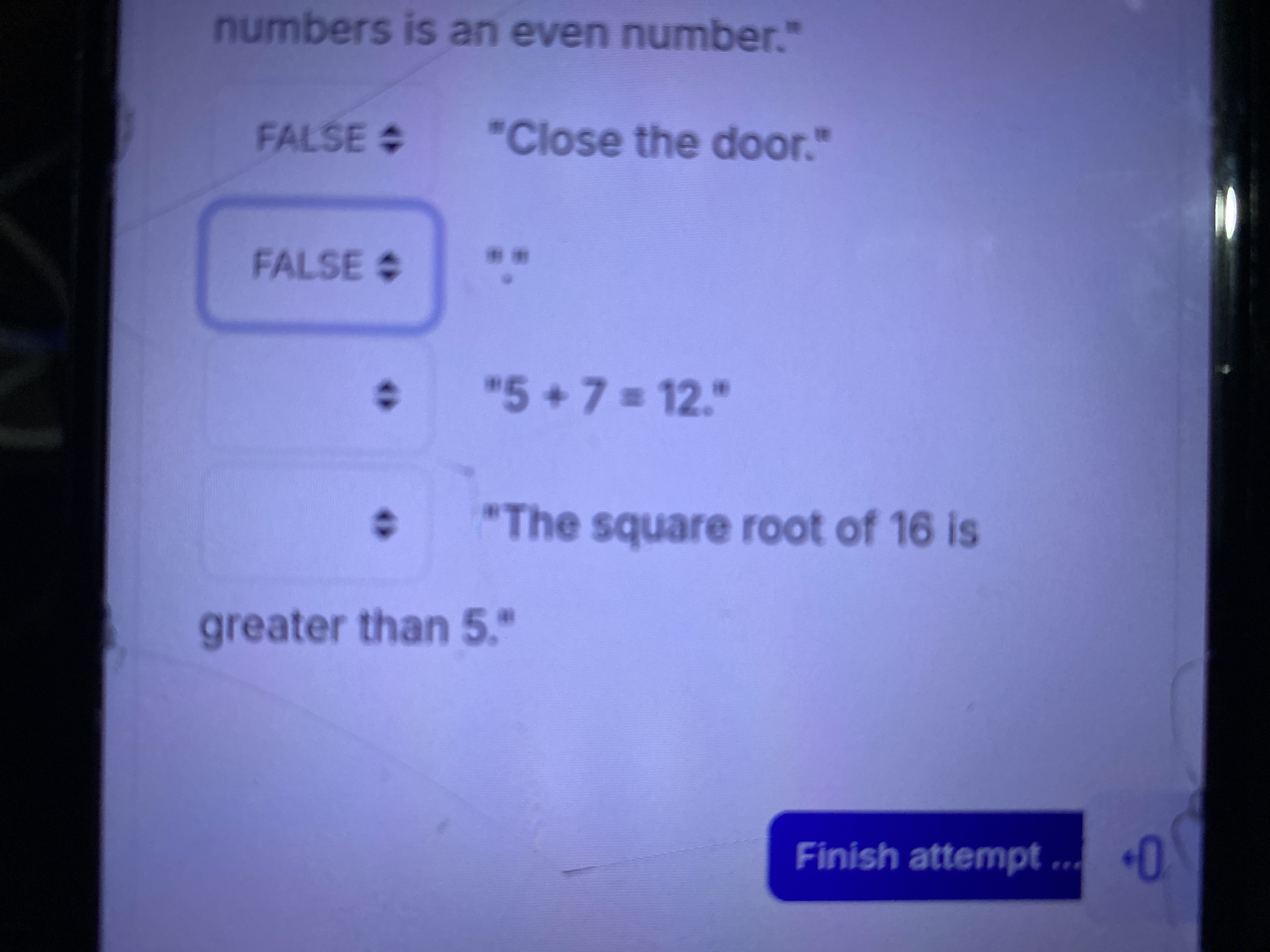Is '5 + 7 = 12' true or false? Is the square root of 16 greater than 5?

Understand the Problem
The question appears to be a multiple-choice format involving basic mathematical statements, asking about the validity of specific mathematical assertions.
Answer
All evaluated statements are **FALSE**.
Answer for screen readers
All mathematical statements evaluated are FALSE.
Steps to Solve
-
Analyze the statements We have three statements to evaluate for their truthfulness:
- "5 + 7 = 12"
- "The square root of 16 is greater than 5."
- "Close the door." (This statement is not a mathematical assertion.)
-
Evaluate the first statement: "5 + 7 = 12" To check this, we calculate: $$ 5 + 7 = 12 $$ This is true, so this statement is FALSE.
-
Evaluate the second statement: "The square root of 16 is greater than 5." We find the square root of 16: $$ \sqrt{16} = 4 $$ Since ( 4 ) is not greater than ( 5 ), this statement is FALSE.
-
Consider the third statement: "Close the door." Since this is not a mathematical statement, it cannot be evaluated in the same manner.
All mathematical statements evaluated are FALSE.
More Information
Understanding the truth value of these statements helps in recognizing the validity of mathematical assertions. The first statement confirms basic addition, while the second illustrates how square roots can often yield results that are less than what we might estimate at first glance.
Tips
- Miscalculating basic arithmetic operations can lead to incorrect truth values. Always double-check calculations.
- Confusing non-mathematical statements with those that can be evaluated mathematically.
AI-generated content may contain errors. Please verify critical information